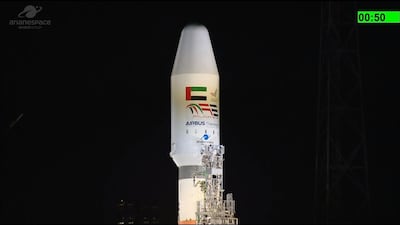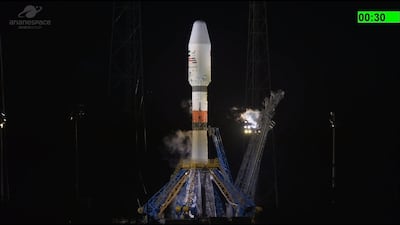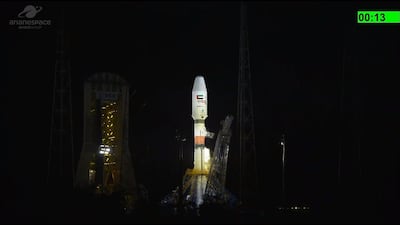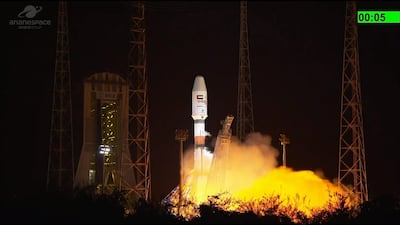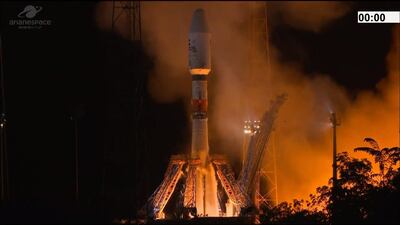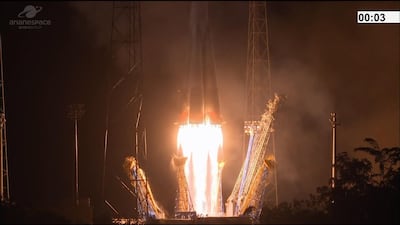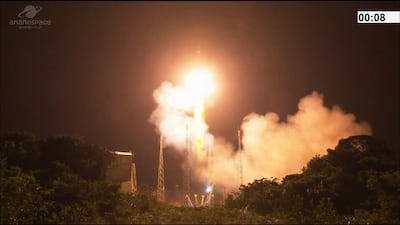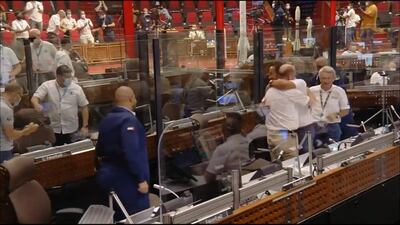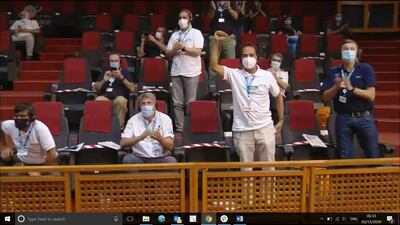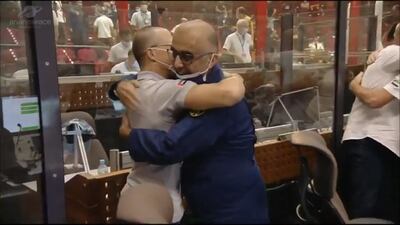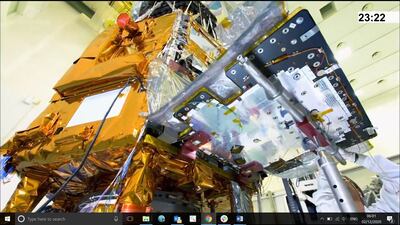The UAE's latest satellite, Falcon Eye 2, lifted off into space in the early hours of Wednesday from French Guiana Space Centre.
A Soyuz rocket carried the satellite into orbit at 5.33am UAE time. It will operate as an Earth-observation satellite and provide images for critical missions, emergency relief, regional security and peacekeeping operations.
It will also monitor environmental changes and alterations to geographical features.
The satellite, which weighs 1,190 kilograms, separated from the rocket at 6.33am and was placed in a near-circular orbit 611 kilometres above Earth.
As part of the Falcon Eye programme, two identical satellites were built for the UAE Armed Forces.
The first was Falcon Eye 1, which was lost in space last year after the Italian Vega rocket that carried it failed.
The launch of Falcon Eye 2 was delayed a few times in the past couple of months because of bad weather and the Covid-19 pandemic.
“We are proud in this moment and I’d like to thank my crew and to the Emirates for working side by side with their partner for five years,” Khalifa Al Rumaithi, chairman of Falcon Eye programme, said during a live stream by launch service provider Arianespace.
“I confirm that tonight we’ve been successful with the Soyuz launch and Falcon Eye is in its targeted orbit," said Stephane Israel, chief executive of Arianespace.
The spacecraft will provide high-definition images from around the world for military and civilian use.
"The Falcon Eye system added lots of abilities to support the country's mission by maintaining the security of the country and the stability of the region," a senior official with the Falcon Eye project said.
“It is really considered to be a capability owned by a few countries worldwide.”
The project began five years ago and the satellite was built by Airbus Defence and Space and Thales Alenia Space, in Toulouse, France. The UAE Space Agency oversaw its development.
A diverse team that included Emirati, French and Russian officials was present for the launch.
Many experienced engineers and technicians from the UAE Armed Forces are part of the Falcon Eye programme. An Emirati team in France oversaw the project from there.
"I'm honoured that my country provided me with the chance to be part of this high technological programme," an engineer said during the live stream.

Another said it was exciting to see how the satellite "will bring value to our country".
Philippe Pham, senior vice president of Earth observation, navigation and science at Airbus Defence and Space, said his team would hand over control of the satellite once they ensured it was fully operational.
“We are proud to lead the industrial team and to be part of a very high-resolution Earth-observation mission for the UAE,” he said.
“Falcon Eye is a state-of-the-art satellite. But it’s not just a satellite, it’s a full space system, including the ground segment and the imagery processing capabilities. It will deliver top-quality observation imagery for the customer.”
Airbus trained the Emirati team to operate the satellite's systems. This will enable ground control in Abu Dhabi to retrieve images and intelligence reports.
Michel Roux, Falcon Eye programme director at Airbus, said this had been one of their longest launch campaigns because of the delays caused by the pandemic.
“We started early this year, but the campaign had been stopped for several months,” he said.
"This is the year of Covid-19 and with lockdown, travel restrictions and the difficulty to work normally, it created several delays."
